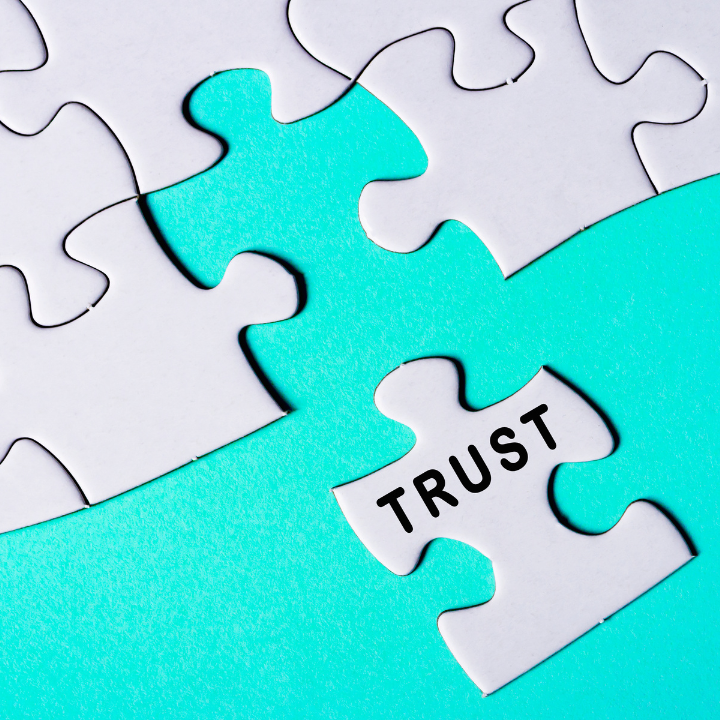Following on from last week’s podcast episode about communicating sustainability versus greenwashing: Revitalise & Grow podcast, Season 6, Episode 4, this week we’re discussing the wider topic of building brand trust.
What is brand trust?
Brand trust is how much confidence consumers have in your brand. It is earned by consistently delivering on your brand’s promises. It takes years, decades even, to build and yet can be destroyed in seconds (check out our examples of greenwashing in last week’s blog for more on this).

Why is brand trust so important?
Brand trust is fundamental to the success and longevity of your business – it helps you to win new customers and retain existing ones. It drives market share, profitability and builds your reputation. Critically, brand trust means you are familiar to consumers, and this is essential as consumers are reluctant to spend with brands they aren’t familiar with.
Brand trust doesn’t just mean your product working as described either. According to the 2023 Edelman Trust Barometer, consumers and employees now expect businesses to step up for them, as across the world trust in governments has fallen and consumers are looking to businesses to fill that void. Edelman’s research states 63% of respondents buy or advocate for brands based on their beliefs and values, and 69% say having societal impact is a strong expectation or deal breaker when considering a job. The report goes on to say that consumers want more societal engagement from brands, not less, with CEOs expected to act on issues surrounding employees, climate and discrimination. The time for sitting on the fence is over!
As we’ve alluded to, brand trust is built on two different levels. The first being your business’s competence – your capability to deliver what you say you will – and the second is being ethical – doing the right thing. Both are equally important.

Actionable ways to build brand trust:
- Lead from your heart. Take a stance on issues by aligning your values with your business. Create a vision, mission and purpose if you haven’t already got them embedded in your organisation.
- Be a good corporate citizen. Linked to your values, putting wider society at the heart of your company is the cornerstone of becoming a trusted business. Decide which causes are relevant to your business and how you can help both people and the planet.
- Do what you say you will. This covers everything from ensuring your product operates as promised, to returning a call or replying to an email on time, or following through on donating to a relevant charitable cause.
- Be consistent. When customers know they can rely on you to do as you say consistently, trust can be built.
- Be open and honest. In all your communications, whether that’s with staff, suppliers or customers, ensure you are being as transparent as you possibly can.
- Have amazing customer service. This should be easily available at each stage of the customer journey and across all the touchpoints you know your customers use – whether that’s on email, the phone, through webchat, on social media or face to face. Listen and act on customer feedback – and don’t be afraid to communicate changes that are made because you’ve listened.
- Offer value for money. Customers understand that costs have increased but you still need to offer good value for money. If you are more expensive because of your high quality craftsmanship, explain your processes on your website and social media channels. The more transparent you can be about pricing, the more customers will trust you.
- Maximise reviews. Your best marketing asset and trust builder is your existing customers. Put the spotlight on them by having a review programme using a trusted third party such as Trustpilot with a live feed on your website and let them sell your products for you!
- Hero your employees. Whatever chance you get, use your employees to help build trust by showcasing the real people that make up your business. People buy from people and not only will this help to build trust, it will also help to increase sales.
- Maximise communications. Use a range of relevant marketing communication channels to reach all your audience and have a comprehensive communication strategy which reflects everything we’ve discussed in the points above.
If you need any help with developing an effective communication strategy designed to build trust, contact us to set up a no-obligation discussion with one of our experts.
And our bonus tip for building trust? Make it core to your business and have everything else flowing out from it. Make trust building part of your C-suite discussions – give it the credit it deserves!

